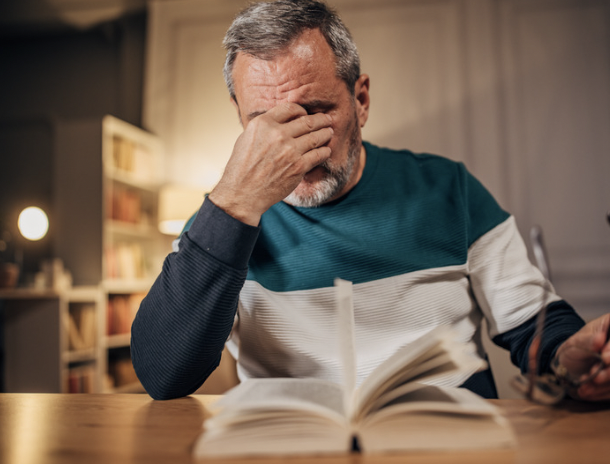Headaches are a common complaint among elderly individuals, and can be caused by a variety of factors. This article discusses factors causing headaches and eight tips to combat them. Some of the most common causes of headaches in older people include being mentioned below.
1. Medications:
Many elderly individuals take multiple medications to manage various health conditions, and some of these medications can cause headaches as a side effect.
2. Chronic conditions:
Certain chronic conditions, such as arthritis, hypertension, and diabetes, can increase the risk of headaches in the elderly.
3. Vision problems:
Changes in vision and eye-related problems can also cause headaches in older people.
4. Stress:
Stress is a common trigger for headaches, and older people may experience stress due to changes in their lifestyle, health, or social circumstances.
5. Dehydration:
Dehydration is a common problem among the elderly, and can cause headaches as well as other health issues.
6. Infections:
Certain infections, such as sinusitis or urinary tract infections, can cause headaches in the elderly.
Ten tips for managing headaches in elderly
Here are some tips that may help combat headaches in older people:
1. Stay hydrated:
Drinking enough water and fluids can help prevent dehydration, which is a common cause of headaches.
2. Get enough sleep:
Ensuring that you are getting enough restful sleep each night can help prevent headaches.
3. Manage stress:
Engaging in relaxation techniques such as meditation, yoga, or deep breathing exercises can help manage stress and prevent headaches.
4. Exercise regularly:
Regular physical activity can help reduce the frequency and severity of headaches.
5. Avoid triggers:
Identify and avoid triggers that can cause headaches, such as certain foods, alcohol, or strong smells.
6. Maintain good posture:
Poor posture can cause tension headaches, so it is essential to maintain good posture while sitting and standing.
7. Use pain-relieving medications:
Over-the-counter pain medications such as acetaminophen or ibuprofen can help alleviate headache pain.
8. Seek medical attention:
If headaches persist or become severe, it is essential to seek medical attention to determine the underlying cause and receive appropriate treatment.
9. Monitor medication use:
Be aware of any medications the older adult takes that may cause headaches. Work with their healthcare provider to adjust dosages or find alternatives if necessary.
10. Get regular eye exams:
Make sure the older adult is getting regular eye exams, as vision changes can contribute to headaches.
It is important to note that these tips may not be practical for all types of headaches, and that seeking medical attention is recommended for proper diagnosis and treatment.
Take away home
Headaches are said to show or indicate any problem in the body, like inflammation, brain tumor, and temperature. Therefore it is essential for elderly individuals who experience headaches to seek medical attention to determine the underlying cause and receive appropriate treatment timely. Depending on the cause of the headache, treatment options may include medications, lifestyle changes, or other interventions. Suppose, if any chronic condition is diagnosed, treatment according to that condition would be given. Having said that, it is not that headaches are just symptoms of any chronic illness. For example, they may occur due to stress or less sleep.

